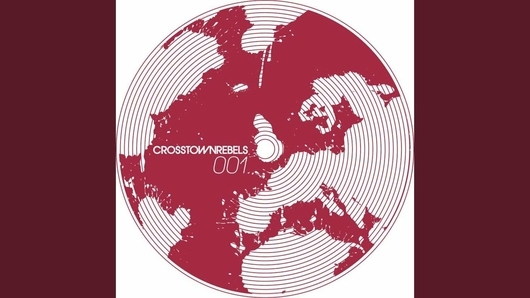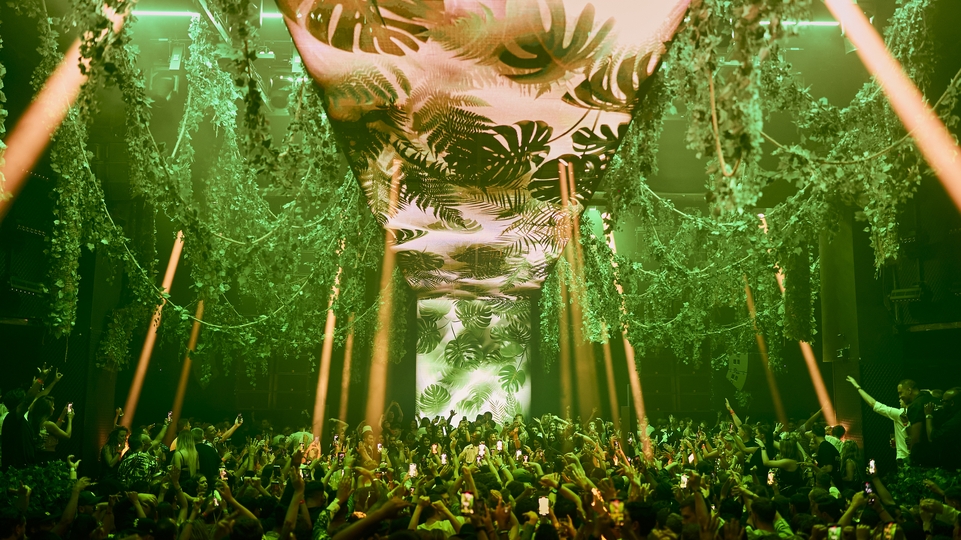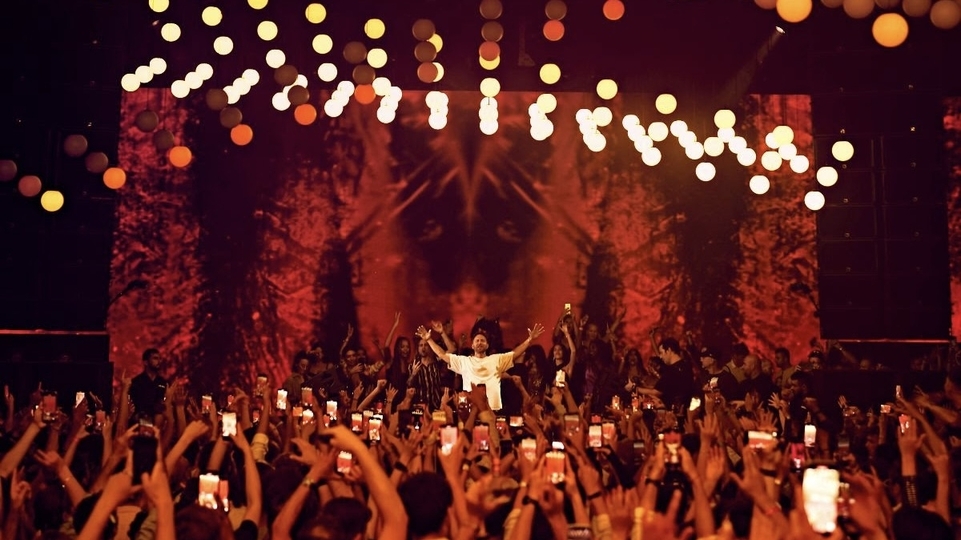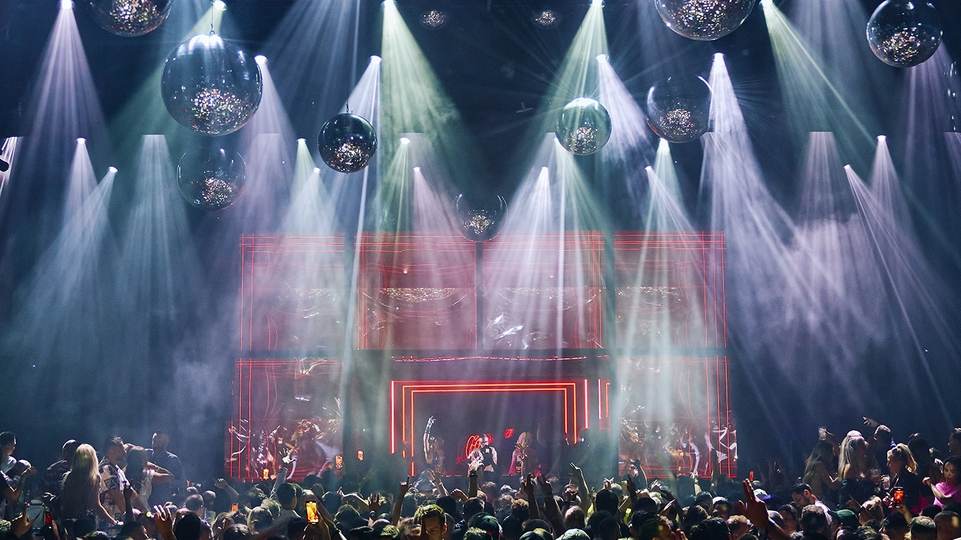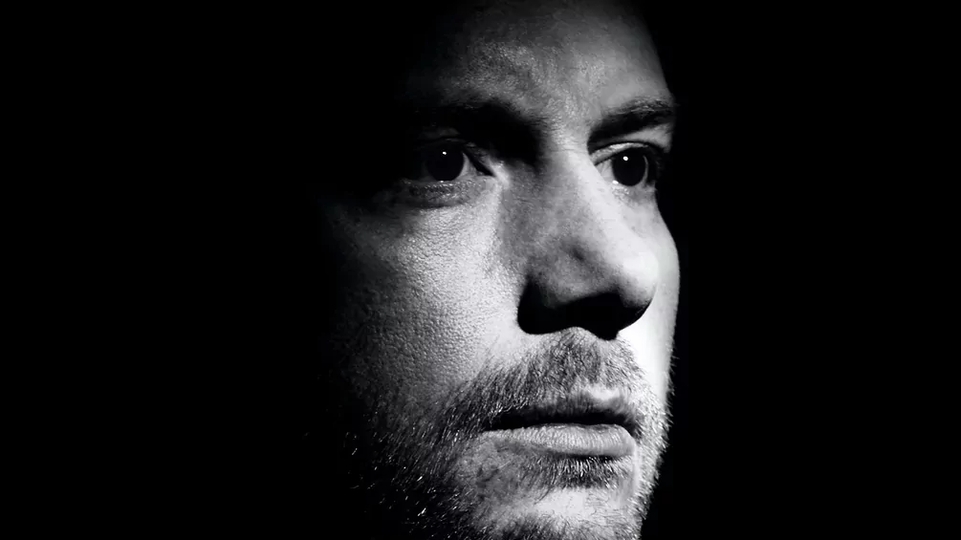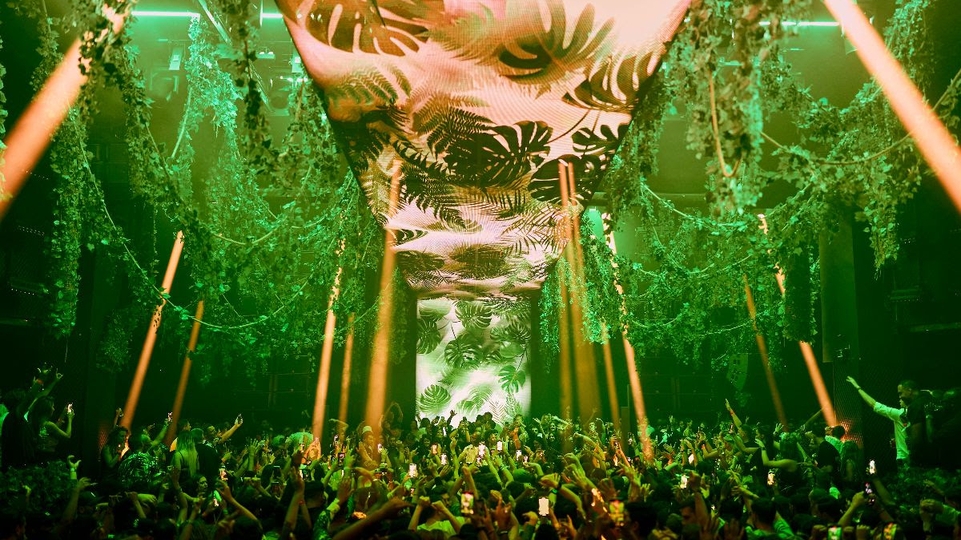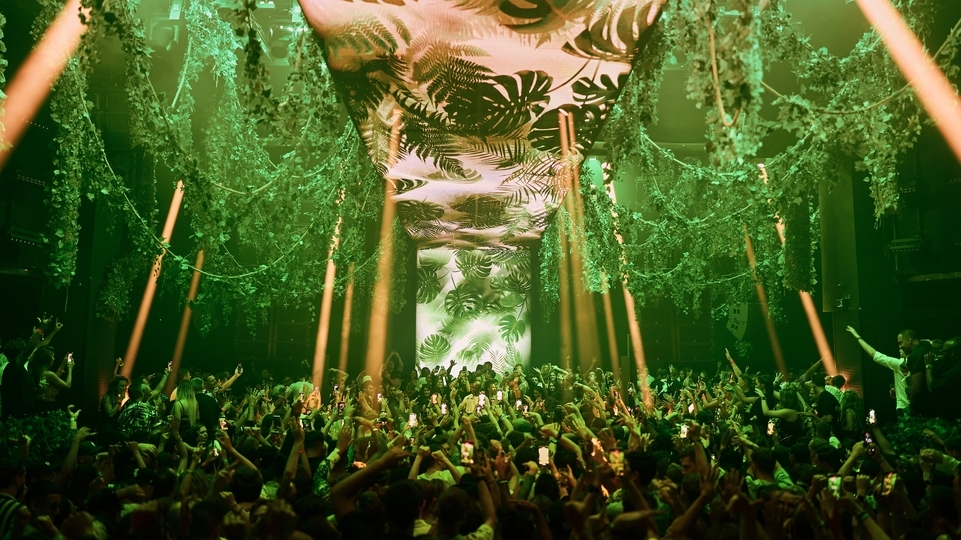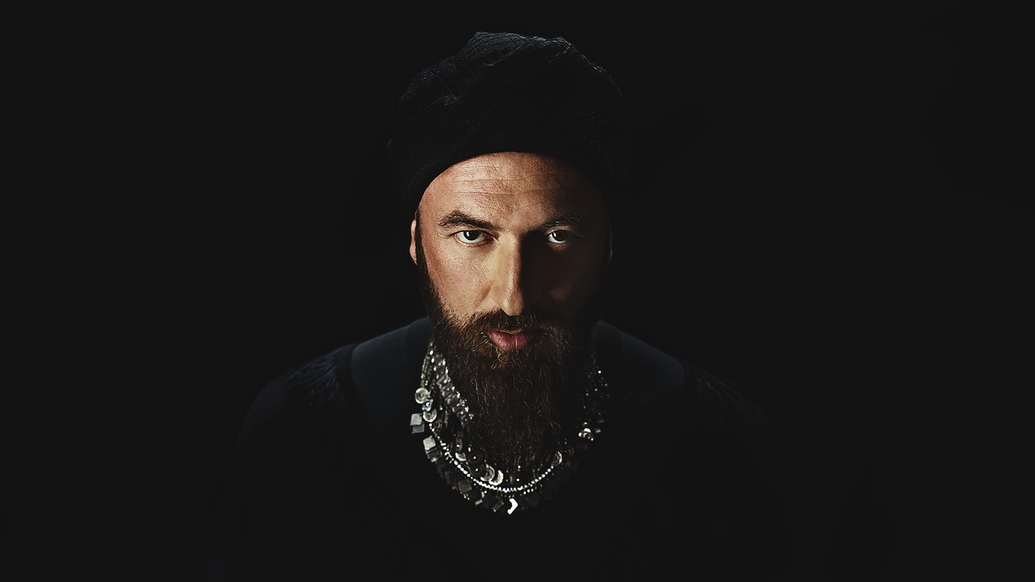
Damian Lazarus: casting spells
Damian Lazarus celebrates 20 years of his pioneering record label, Crosstown Rebels, in 2023, the vehicle which has helped him travel to the upper echelons of the international DJ pyramid and score a high-profile Ibiza residency, taking over the Club Room of Hï Ibiza every Saturday night this summer. DJ Mag talks to Damian about wizardry, his weekly Hï Ibiza night, the history of his Crosstown label, and DJing in the great outdoors
From the start of the Ibiza season to the end, Damian Lazarus has been helming the Club Room at Hï Ibiza every Saturday night, complementing South African superstar Black Coffee in the Theatre. It’s the second Ibiza season where he’s been bringing his distinctive style of musical magic to Hï Ibiza’s second room, and it’s proven to be one of the most popular nights on the whole island again this year.
Damian hand-picks his guests every week, and these have included a fair few of his underground favourites, including Layla Benitez, Bartolomeo, Carla Durisch, DJ Holographic and Francesca Lombardo, as well as more established artists such as amapiano stars Major League Djz, Art Department, Bedouin, and even Mad Decent boss Diplo, who he collaborated with on the track ‘Don’t Be Afraid’ a couple of years ago. But who is this British DJ who’s earned the nickname ‘The Wizard’ and has such an international presence and pedigree? As his label Crosstown Rebels celebrates its 20th anniversary, let’s chart the history of the underground artist entrusted to co-curate one of Hï Ibiza’s most important nights.
When we catch up with Damian he’s sitting on a balcony in Ibiza, chilling with his family after what was supposed to have been a quiet weekend. Instead, he played a private villa party on Friday, his Hï Ibiza residency on Saturday, and started the week closing out Circoloco at DC-10. Understandably, he’s exhausted — although he’s off to a waterpark after getting off Zoom with us. So when at one point he suddenly says of the Crosstown Rebels 20 landmark, ”it also made me feel that it would be nice to have a break”, it genuinely seems he’s about to announce his temporary retirement.
It’s the kind of wrong-footing the Crosstown boss has made his oeuvre. Starting out in the late ’90s running drum & bass party PM Scientists, he pivoted in the 2000s to shape the early electro-house and electroclash scenes via his label City Rockers — home to the likes of Felix Da Housecat, Tiga and Different Gear. This was twinned with the party Bodyrockers, a monthly event at Cynthia’s Robot Bar, a venue under London Bridge that featured a robot barman who could allegedly make 72 different cocktails. Along the way, he’s been a crime reporter at The Sun, assistant editor of Dazed & Confused and an A&R for Pete Tong’s FFRR label.
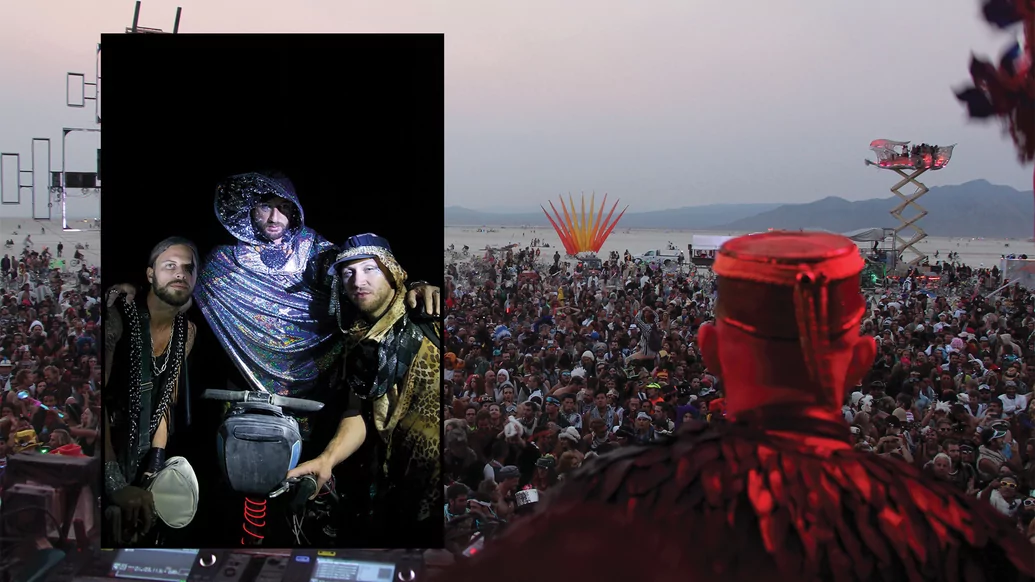
“I started a record label at probably the worst time there was to do so. But the goal was never to make money. It was, how are we going to find the best fucking music on this planet?”
Crosstown Rebels, the label he birthed in 2003 from the same initials as its predecessor, has come to define his legacy, though – its two decades celebrated with a tour, a compilation, an exhibition, a hardback book and a forthcoming film. In that time it helped launch the careers of artists such as Jamie Jones, Art Department, Maceo Plex and Deniz Kurtel. And it's been a conduit for various long-running parties: Miami’s epic annual Get Lost, which this year featured 90 artists over seven stages, and Day Zero, the festival Lazarus launched on 21st December 2012, the end of the Mayan calendar and the prophesied end of the world, in Tulum, Mexico, at an ancient Mayan pyramid in the jungle.
It was actually Lazarus’ manager who pointed out that Crosstown was reaching this grand milestone. “I had no idea,” he says. “You just kind of go from day to day in this business and don’t really have a moment to sit back and reflect on timings.” Now 51, his first reaction was how old he was, although he checks this now, saying it ‘’isn’t old”. This was followed by trepidation that made him want to ignore it. “Then in usual Lazarus style, instead of agreeing to do a small thing I organised the creation of a coffee table book, a global tour, a compilation of unreleased gems and remixes of some of the label's hits, and a film. I took the bull by the horns and just went for it.”
The CR20 book traces various phases of Crosstown’s development. In the early years, it was influenced by artists he knew in Berlin and Paris. He owes this to working with Felix Da Housecat, whose 2001 album ‘Kittenz And Thee Glitz’ he released on City Rockers. “Felix was the first person to introduce me to the Gigolo sound, DJ Hell, Miss Kittin and the various connections he had,” says Lazarus, who made his first trip to Berlin in 2000 for the Love Parade. It was a formative weekend, providing impetus not just for City Rockers but also for the future Crosstown Rebels, thanks to meeting Kiki & Silver Surfer.
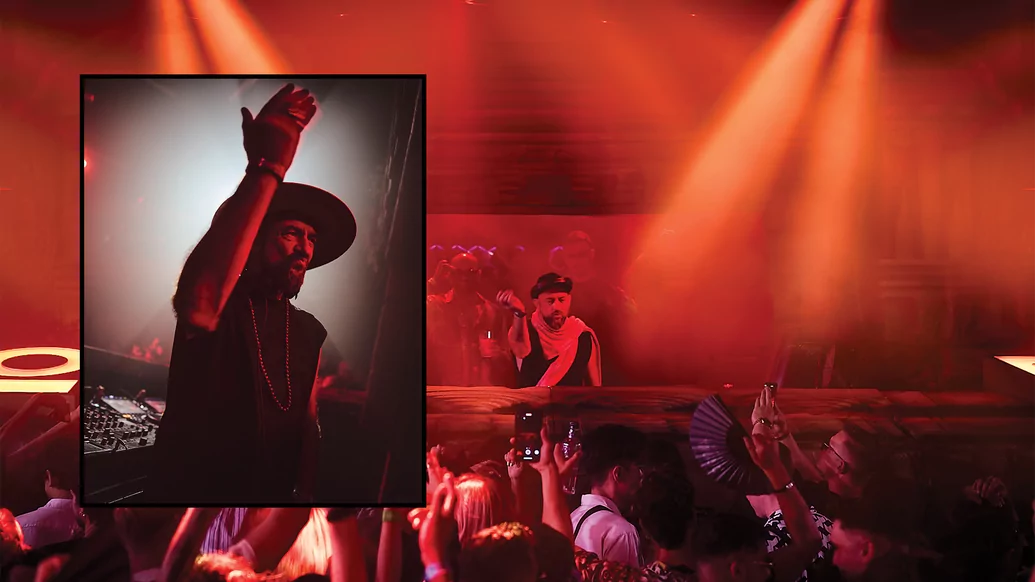
After signing US act The Warlocks to City Rockers, a “psychedelic drum band... a little bit Velvet Underground, a little bit Spiritualized”, it was Kiki & Silver Surfer he enlisted to do a club remix: “They did this amazing job, which I thought was perfect.” But the band didn’t like it and neither did Ministry of Sound, who were bankrolling City Rockers. “So I jumped ship and started Crosstown Rebels,” he says, taking Kiki & Silver Surfer with him. Their first bunch of demos provided the label’s debut single, the double-sided ‘Sleeza’/’Etheric’, two low-slung slices of neo-space disco.
Crosstown’s logo encapsulated his vision for the label from the off, “a global organisation criss-crossing the world connecting rebellious, anarchic, slightly left-of-centre personalities, musicians, DJs and producers, creating a global community of like-minded people”. Early party Slash & Burn began this at The Key in London’s King’s Cross, as did Rebel Rave parties around the country. But it was the launch of Stink in 2007, a collaboration with Kompakt’s Michael Mayer at East London’s T-Bar, that really coalesced these intentions. “It was a particularly high-energy, hedonistic time,” he says of an era when parties ran all-weekend in East London. “There was this level of abandonment that was beautiful.”
Out of this mix, new sounds and fashions were emerging that Lazarus channelled into Stink, which he threw on a Monday night. The opening night, overseen by DJ Koze and Jamie Jones, saw 1,500 people queuing down Shoreditch High Street. Running for just a year, Lazarus decided “to close that one on a high” — with T Bar itself closing shortly after. What should have been a moment of triumph, however, was marred by financial ruin. “I started a record label at probably the worst time there was to do so,” he explains, the start of the digital era leading to record sales dropping off precipitously. In a sign of the times, three of the label’s distributors went bust. First there was Ideal, taking the profits from the label’s first three singles, then Intergroove, and finally in 2008, Amato, who held most of Crosstown’s stock and owed the label £80k.
With no money to pay artists, designers, production, manufacturing or PR, Lazarus put the label into insolvency. “But the goal was never to make money,” he says of the alternative striving that lies behind his ability to regenerate. “It was, how are we going to find the best fucking music on this planet?” This was still niggling him, especially as he felt he’d already met the stars of the future. So when some friends in LA offered him a loan in return for moving there to help them set up their label, Culprit, he found himself back at HMRC and Companies House “buying Crosstown Rebels back off the shelf so I could continue to trade under the name I’d created. It was all very sad and disheartening, but I really believed in it.”
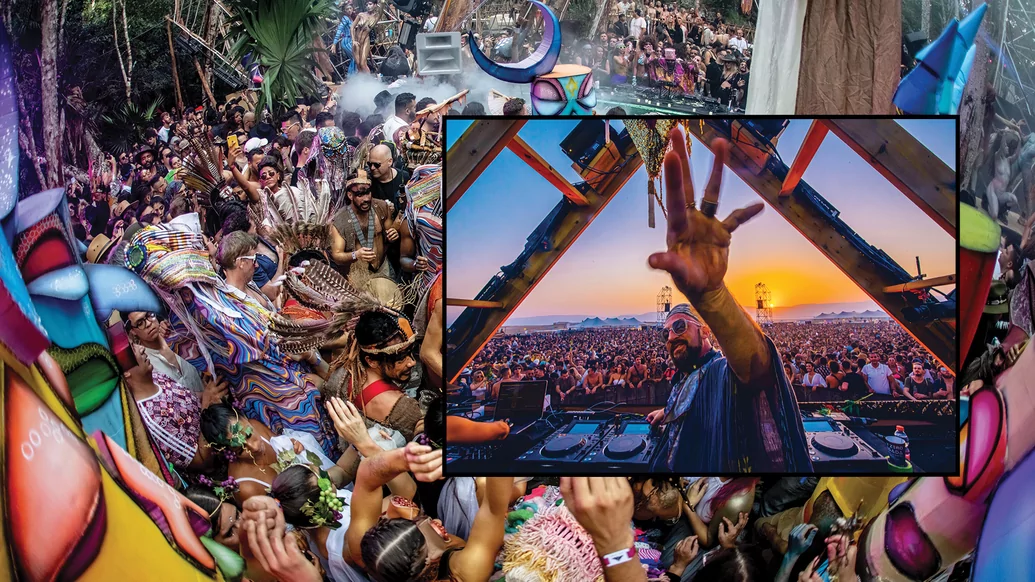
“I’ve always felt we’re living in one of a number of dimensions around us. I think if you look closely there are signs, there are things in the universe to show us the way, because otherwise we’d be very lost.”
Paying back the money he owed, his instinct was right. Over the next three years Crosstown released huge singles, including Deniz Kurtel’s ‘Yeah’, Maceo Plex’s ‘Vibe Your Love’, Art Department’s ‘Without You’ and ‘We Call Love’ (it was Lazarus who’d got Jonny White and Kenny Glasgow to work together), and Jamie Jones’ ‘911’ and ‘Summertime’. Stages at American festivals such as EDC and Beyond Wonderland, meanwhile, gave the label a huge audience. “And then with the Rebel Rave films we were making and parties we were doing, we were creating this community spirit.” It culminated, at the end of 2011, with Crosstown being voted the world’s number one label on RA. “I'm not one for charts and lists and stuff like that. But that actually did mean a lot to me, because I’d worked so hard to get it to that point.”
It was inevitable after this peak, he says, that the artists who’d helped Crosstown find success would want to start their own labels and parties. “It was time for those people to go off and it was time for me to start looking around for new angles and what was going to come next.” This was when he began to discover artists such as Bedouin and Satori, or what Lazarus describes as Crosstown’s move into desert music. “I think it largely comes as a result of our first trips to Burning Man in 2010. I realised around that time that I often feel most comfortable as a DJ and an artist playing in the open air in places of natural beauty, in the jungle, in deserts, soundtracking the sunrise and sunset.”
Burning Man was also a massive inspiration to create Day Zero, which celebrated its 11th edition at the end of last year. Going out with a Mexican girlfriend and touring the country, Lazarus had already fallen in love with the beauty of Tulum, then more a hideaway for rest and relaxation: “It’s a natural paradise, and I met some magic people there and got some very strong spiritual advice.” Aware of the risks in bringing a party to such a remote place, Lazarus went ahead only after having a cosmic awakening. This followed guidance given to him by a medicine man who’d come to his house to do some healing.
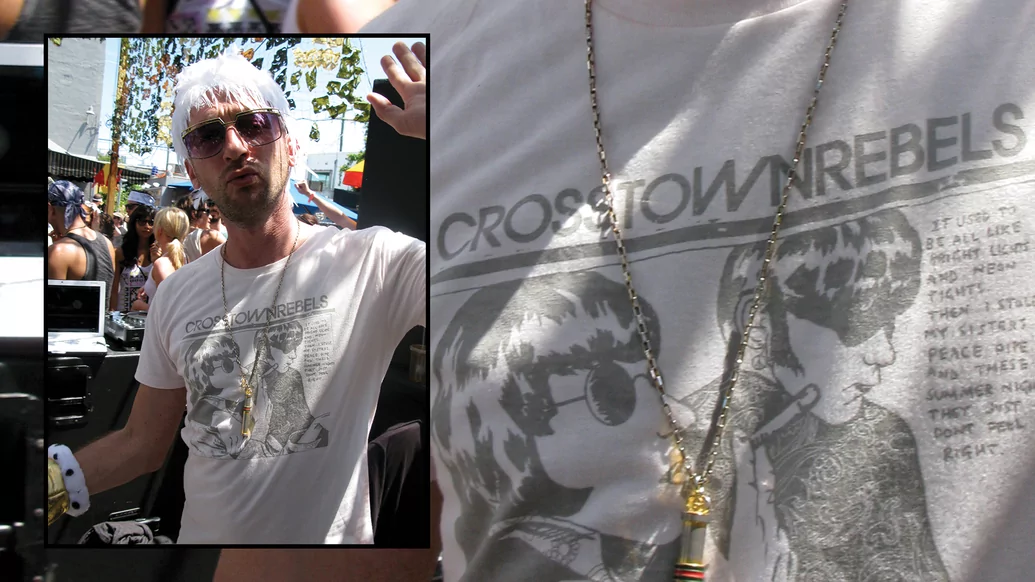
Told to go to the beachfront on a full moon between certain times of night, “I felt like I was physically connected to the universe,” he says. “I was told to put my hands up to the moon and immediately I felt this electric current rolling through my fingers, then through my whole arm, my head, my body. It was like nothing I've ever experienced before.” Convinced it was “the green light from unknown beings”, the wheels of Day Zero started to turn. With Tulum now a well-trodden party spot, there has been plenty of criticism of those seen as exploiting it. Lazarus, to his credit, has done more than many to counter this, collaborating with Maya people on the running of the festival and hosting a stage purely for Mexican artists.
Some might dismiss his experience as hokum, but Lazarus’ nickname of ‘The Wizard’ isn’t just about his ability to conjure things up out of thin air. He has a long-standing interest in magic and illusion that goes back to childhood. “I won a drawing competition when I was six years old,” he says, sketching Star Wars droids R2-D2 and C-3PO. Winning tickets to see the film, the prize also included a magic set. “So I’ve always had an interest in that. Then I started getting into Alejandro Jodorowsky and psychomagic,” he says of the Chilean director’s cinema-inspired method for healing emotional trauma through metaphorical acts.
“I’ve always felt we’re living in one of a number of dimensions around us. I think if you look closely there are signs, there are things in the universe to show us the way, because otherwise we’d be very lost.” Lazarus has got lost many times before — and has the party to prove it. But this deeply embedded belief in some kind of benevolent guiding force has kept bringing him back to the path he’s on. The CR20 tour was a chance to look back over the distance he’s travelled. “I decided it wasn't a money-making venture,” he says, before thanking Tequila brand Volcan, who may well have helped bankroll it. “Instead, I selected 10 locations that mean something special to the label.”
Kicking off at Get Lost, these included a sold-out Friday night at fabric and playing Tokyo with Seth Troxler — somebody else he had a part in bringing through. “It’s been really nice to have a reason to pull the whole community together,” he goes on, sounding nostalgic. “To ask people to send me photos for the book or just reach out and invite them to see the exhibition we put together in London. To have artists I haven’t seen for maybe five, six years turning up at certain parties, just getting the family back together. It's been a heartwarming, amazing time. I’m really happy I was persuaded to do something, because I could easily have just washed it off and gone, ‘No, let’s crack on’.”
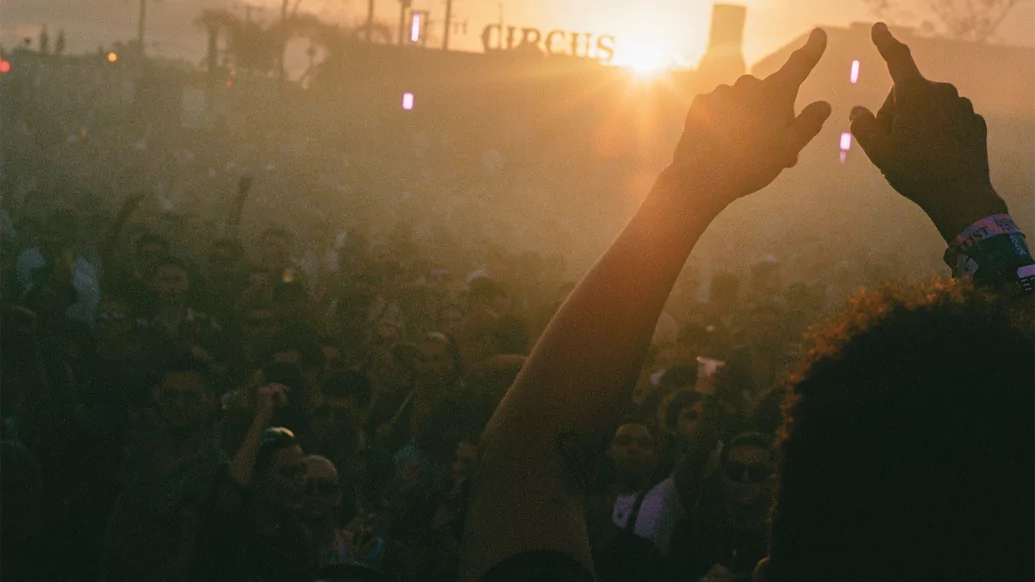
Starting Secret Teachings last year, a sister label to Crosstown for “more experimentation outside of the dancefloor”, he recently entered the world of soundtracks, scoring documentary Beijing Spring. This, he says, has sounded the “call to make new music”, with Lazarus recently back in the studio with various artists. It’s the beginning of a new cycle for the master of reinvention. “I’m feeling superfresh,” he says.
“I’m still DJing like crazy. I feel like I'm at the top of my game, playing music in the best places in the world. I'm a resident at the best club in the world, Hï Ibiza. And I have the best parties on the planet with Day Zero and Get Lost. Everything's pretty good at the moment.” And with that, he’s off to the Ibiza waterpark, wearing another of his many hats — Damian the dad — before rounding up this week’s troops for his night at Hï Ibiza on Saturday once again.
